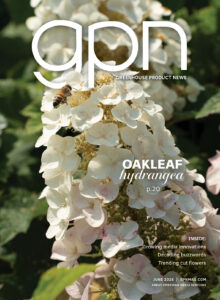Retailers Oppose Bill Mandating Cargo Scanning
The National Retail Federation (NRF) recently urged a congressional committee to reject legislation that would require “scanning” of all cargo bound for U.S. ports, saying the term was not adequately defined and the proposal could result in costly delays that could affect the worldwide trade of products.
“Efforts to require 100-percent scanning of U.S.-bound containers are operationally infeasible and would likely cause unacceptably high economic costs and disruptions to the nation’s commerce,” NRF Senior Vice President for Government Relations Steve Pfister said in a letter to House Homeland Security Committee Chairman Peter King (R-NY).
H.R. 4899, the Sail Only if Scanned Act, or SOS Act, sponsored by Representative Jerrold Nadler (D-NY), would require that 100 percent of cargo containers bound for U.S. ports be “scanned” in foreign ports before being loaded on vessels headed to the United States. The measure is expected to be offered as an amendment to H.R. 4954, the Security and Accountability for Every Port Act, or SAFE Port Act, sponsored by Representative Daniel Lungren (R-CA).
Most plant inputs are shipped via direct carrier and would not be affected by this legislation. The bill would, however, cover such items as bulbs or bare-root stock, media, pots and any other input that is manufactured in another country and shipped via cargo boat to the United States. Given the just-in-time ordering pattern of the floriculture industry, this legislation could have serious consequences.
The problem with the legislation, according to NRF, is that it does not define the word scan, which could mean any number of things – a scan using X-ray equipment, a full gamma ray scan such as the Vehicle and Cargo Inspection System, or the Integrated Container Inspection System used in Hong Kong. The bill does not detail who would perform the scans and provide results to the Department of Homeland Security, address who would pay for the equipment required and its operation, or address health concerns for port workers if gamma ray inspections are used.
Supporters of the legislation often cite the success of the ICIS program in Hong Kong, but NRF argued that the program relies on business practices and investments made by Hong Kong terminal operators. The same practices and investments may not be practical at smaller, less prosperous ports in other nations, NRF said.









 Video Library
Video Library 


















